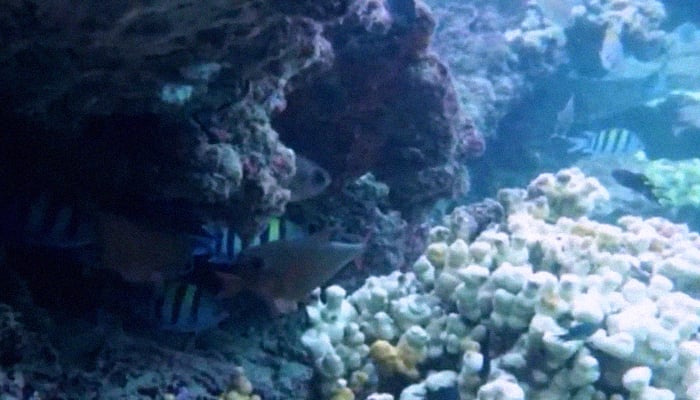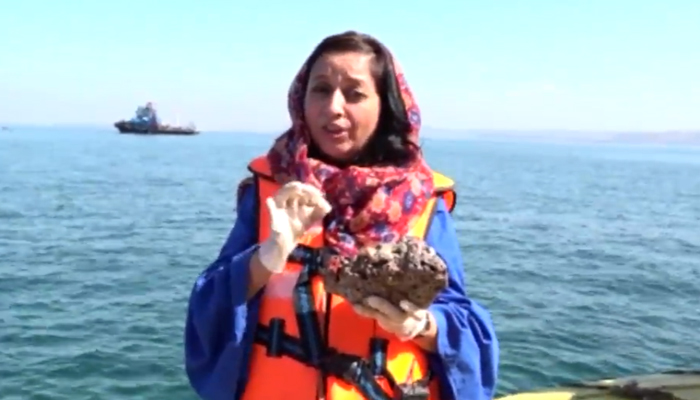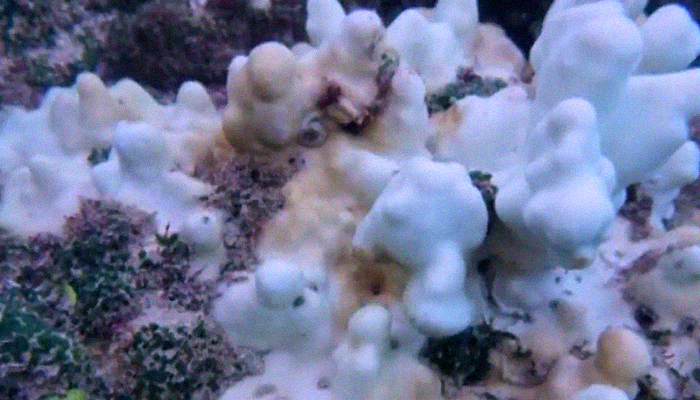Balochistan govt initiates first-ever probe into Churna Island's coral bleaching
Balochistan govt's move comes after Geo News highlighted the environmental issue in Nov 2020
KARACHI: Balochistan's environmental department on Sunday initiated the first-ever study and probe into the coral bleaching near Churna Island — an environmental issue first highlighted by Geo News in November 2020.
Coral bleaching, which was reported for the first time out of Pakistan last month, threatens marine life and poses a risk of exacerbating the climate emergency. The issue was brought to attention by Khizar Sharif, a scuba diver certified by the Professional Association of Diving Instructors (PADI), who alerted activists and authorities in October 2020.
Sharif was shocked when he had come upon the pale, whitened, and dying coral reefs near Churna Island.
The Balochistan Environmental Protection Agency (BEPA) sent its experts to collect samples for a comprehensive research after Geo News stressed on this important environmental issue through special coverage and WWF-Pakistan's experts warned of the white dead coral reefs near Churna Island.
The experts aim to figure out why the coral reefs are dying in a country that boasts 50 different species.
Pakistan is one of those lucky countries where coral reefs are found. Termed rainforests of the sea, they often take up to 100 years to form and are precious and crucial part of Pakistan's ecosystem.
Experts remain curious and worried as to why Churna Island has not been declared a marine protected area (MAP), especially given such biodiversity in the region.
According to Engineer Mohammad Khan, this is the "first time a chemical and biological study" is being conducted to gauge why coral bleaching is occurring.
"We have collected samples, as you can see. University professors and private experts have come in as well," Khan said, adding that the government of Balochistan and BEPA are trying to protect the coral reefs and await the findings and recommendations from the latest study.
The main causes, it is believed, is the exponential growth of industrial activities, which have paved the way for rising sea temperatures.
Shaukat Ali, another expert at Churna Island working for the coral bleaching study, checked the temperatures at different levels in the sea. He said he had obtained the "pH and acidity readings from the water samples" and that the temperature recorded was 25.7°C.
BEPA Assistant Director Imran Saeed mentioned that coral reefs can grow well in temperatures in the 18-28°C range.
"There are numerous new projects here — including the China Power Hub Generation Company's (CPHGC) coal power plant, Byco [Oil Pakistan Limited], and HUBCO [Hub Power Company Limited]," he explained. "There's also the ship-breaking industry here.
"While we are trying to control this, have a proper monitoring [system], and seek compliance reports [from the plants], it's important to understand that it is impossible for industries to grow and not disturb the natural environment," Saeed underlined.
Experts have time and again warned of dire consequences until and unless strict measures are taken to protect the marine life and, in particular, the coral reefs.
-
Security forces gun down 30 terrorists in multiple IBOs in KP: ISPR
-
MQM-P calls for new province in Sindh
-
US report validates Pakistan military edge over India: PM
-
Banned TTP poses serious threat to Pakistan security: UNSC panel
-
CM Afridi clarifies remarks on by-poll after ECP requests army deployment
-
Dubai sees 3.2m Pakistani passengers in 2025 as airport sets new milestone
-
Security forces kill 23 Indian proxy terrorists in KP's Kurram
-
Pakistan to construct island to boost oil exploration: report














